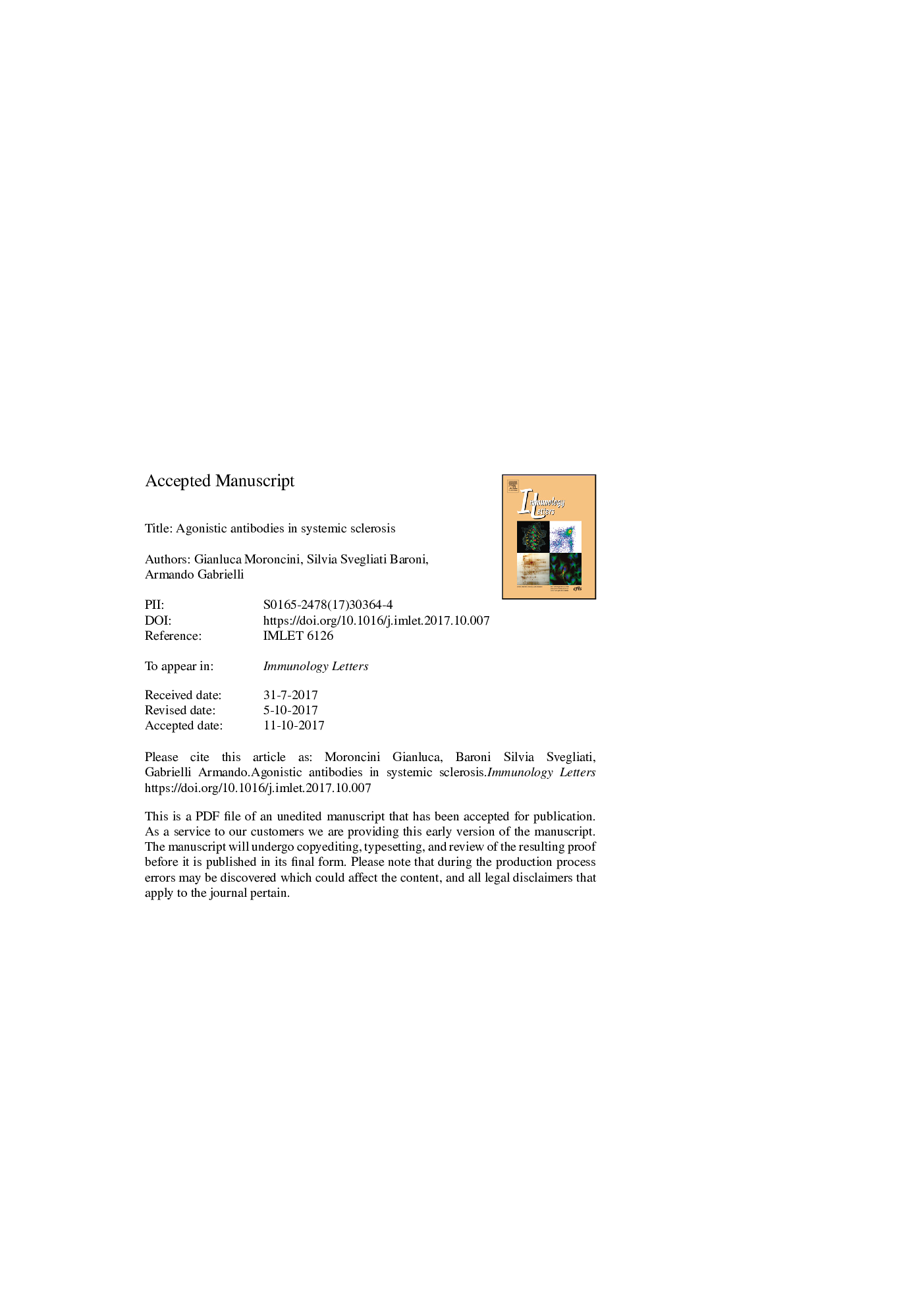| کد مقاله | کد نشریه | سال انتشار | مقاله انگلیسی | نسخه تمام متن |
|---|---|---|---|---|
| 8738365 | 1591531 | 2018 | 19 صفحه PDF | دانلود رایگان |
عنوان انگلیسی مقاله ISI
Agonistic antibodies in systemic sclerosis
ترجمه فارسی عنوان
آنتیبادیهای آنژین در سیستم اسکلروز سیستمیک
دانلود مقاله + سفارش ترجمه
دانلود مقاله ISI انگلیسی
رایگان برای ایرانیان
موضوعات مرتبط
علوم زیستی و بیوفناوری
ایمنی شناسی و میکروب شناسی
ایمونولوژی
چکیده انگلیسی
Systemic sclerosis (SSc) is characterized by microangiopathy, excessive fibrosis, and the presence of circulating autoantibodies to several cellular and extracellular components. The role of autoimmunity in generating the clinical and pathologic phenotypes in SSc has been long debated and is still matter of controversy. Distinct specificities of antinuclear antibodies (ANAs) are selectively detected in SSc patients and are associated with unique disease manifestations, but do not have a proven pathogenic role. A new group of autoantibodies reactive with cell surface receptors have been identified in SSc patients. They have been shown to directly activate pathways that may contribute to tissue and vascular damage. As such, they are proposed to have a role as agonistic autoantibodies in SSc. According to Koch's third postulate, the autoantibodies in question should cause disease when introduced into a healthy subject. Therefore, our review will focus on those autoantibodies for which agonistic activity has already been demonstrated not only in vitro, but, at least partly, also in vivo. These include the antibodies anti-endothelial cells (AECA), anti-Platelet-Derived Growth Factor Receptor (PDGFR), anti-Angiotensin II type 1 receptor (AT1R) and anti-endothelin-1 type A receptor (ETaR). In this review, we will discuss also a class of antagonistic autoantibodies, the anti-muscarinic-3 receptor (M3R) antibodies, since they seem to fulfill the aforementioned requirements.
ناشر
Database: Elsevier - ScienceDirect (ساینس دایرکت)
Journal: Immunology Letters - Volume 195, March 2018, Pages 83-87
Journal: Immunology Letters - Volume 195, March 2018, Pages 83-87
نویسندگان
Gianluca Moroncini, Silvia Svegliati Baroni, Armando Gabrielli,
